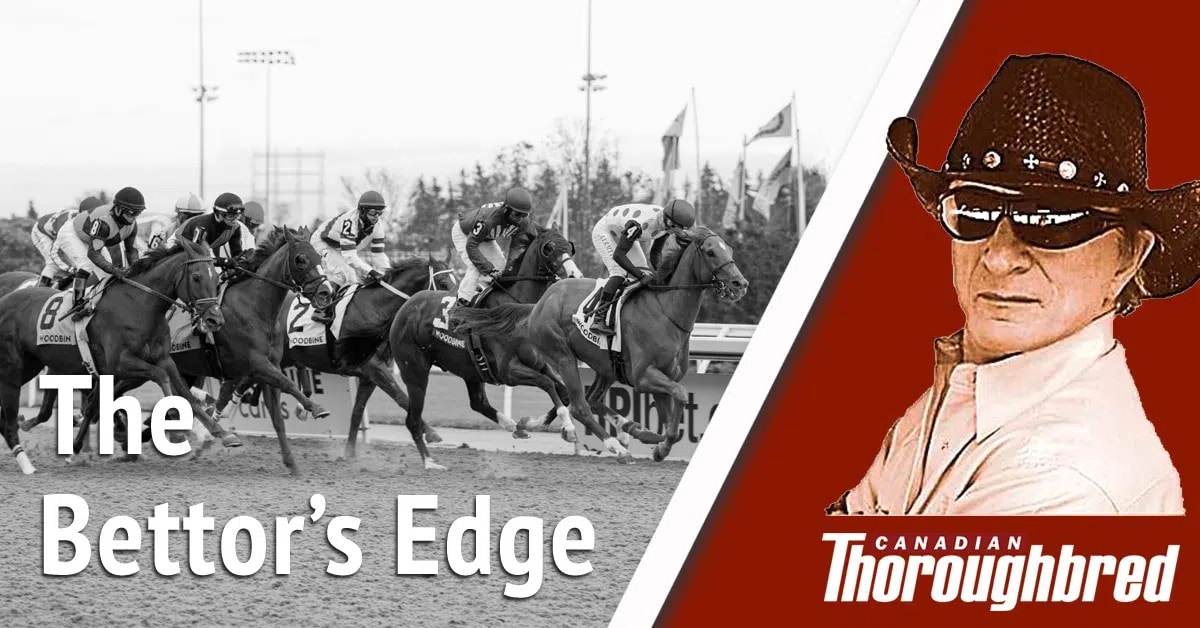Is there a regular horseplayer in Canada who hasn’t heard of the stakes-winning superhorse Pink Lloyd, the retired 10-year-old gelding who won 29 of 38 lifetime starts at Woodbine, 26 of them stakes races, 10 of which were graded? So on Saturday, when an Assiniboia Downs player noticed that #6 Told It All in race 5 at Woodbine had been competing against Pink Lloyd last year, he didn’t think twice before betting the horse even though it was the horse’s first race of the season.
What a wise and rewarding decision! Told It All paid $62.90, the longest shot in the race and the biggest payoff of the weekend. (See program page here.) It was part of the pick-5, too, that paid $20,464 for 20 cents.
But what his play illustrates is the importance of examining the kind of company horses have been racing in. And, I dare say, it’s become a lost effort. After Beyer speed figures were introduced exactly 30 years ago and Equibase pace and speed figures followed, players have tended to look mainly at numbers and not at horses.
I recall a group of players at Assiniboia Downs missing a $292,000 pick-6 in the Breeders’ Cup in 2016 by not looking at the company Finest City, the winner of the Fillies and Mares Sprint at 8-1, had been racing with. Agony struck when the assistant race secretary pointed out he had included Finest City on his pick-4 ticket because Finest City had raced against a particularly classy rival. Argh! If that group and the assistant race secretary had had a meeting of the minds on the pick-6 ticket, well, you get the idea.
Even in discussing races, most players these days generally remember program numbers, not horse names. You see it from podcasters. “I like the two horse in the race,” says the handicapper in a podcast. No you don’t, you like Horse With a Name, so why not say the name and not just the number? What if we referred to world-class human sprinters by the lane they’re in? “I like lane 4 to win the dash.” No you don’t, you like Andre De Grasse or whomever.
Maybe players should be more conscious of horse names when they’re putting together their bets —especially in stakes races. From this corner at least, Mo Donegal was a jump-off-the-page name heading into the Belmont Stakes on Saturday because he was well-remembered from the Kentucky Derby as a horse with the best closing fraction of all horses at 1 1/8-miles coming into the Derby. He had a much better trip in the Belmont than in the Derby and won.
Going forward, what names of quality horses will you think about tucking at the back of your brain —and will you look for these names in past performance lines when handicapping future races?
Last To First At Century Mile: High Kelly Song, a 3-year-old Alberta-bred gelding (by Singing Saint out of Mimipaoponchis), lit up the board Friday at Century Mile with a $74.90 payoff for his maiden victory, showing once again that maidens moving into a claiming race from maiden special weight can make sudden form reversals. He had finished last in the previous MSW race.


